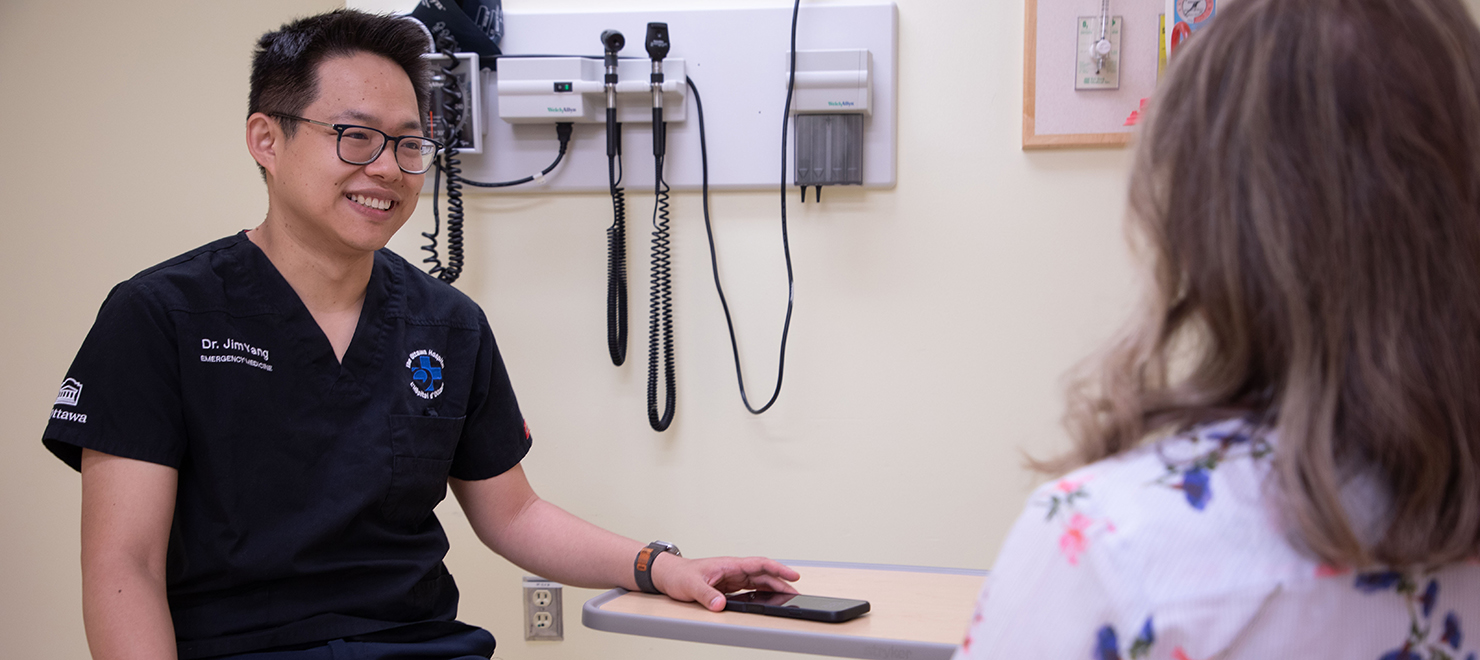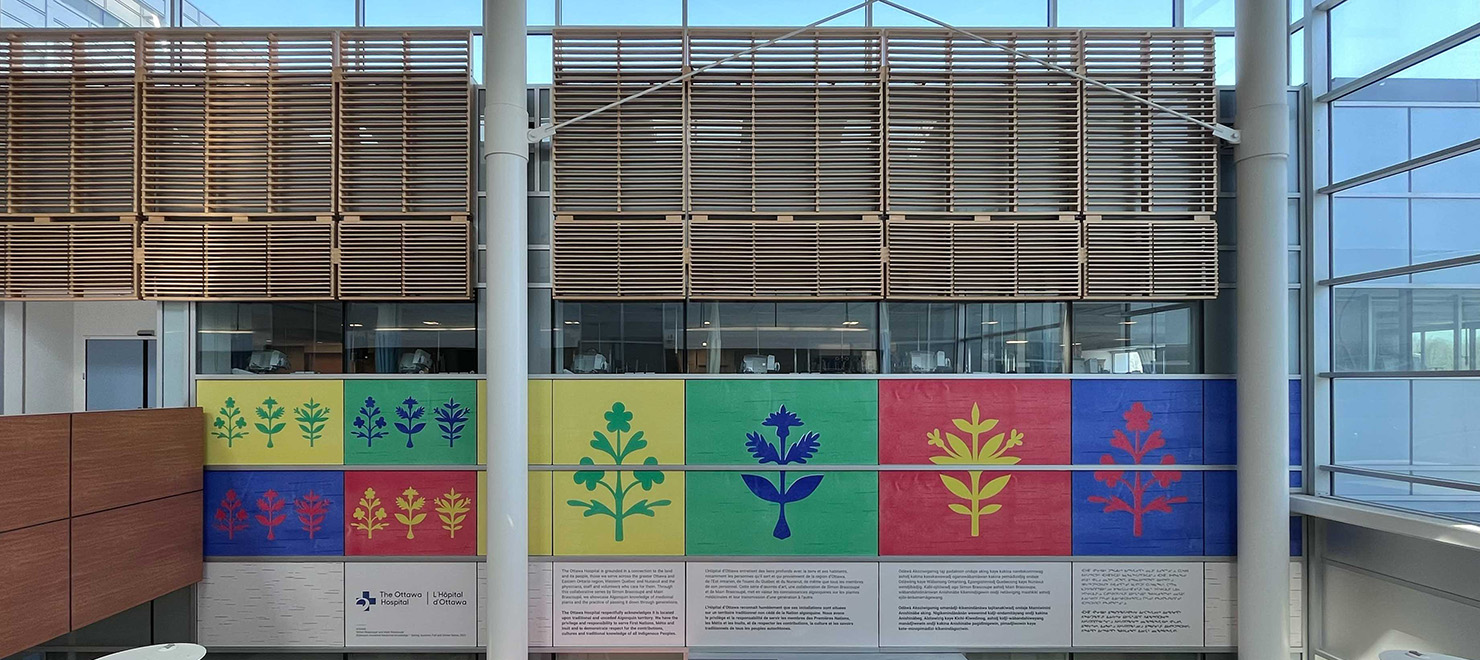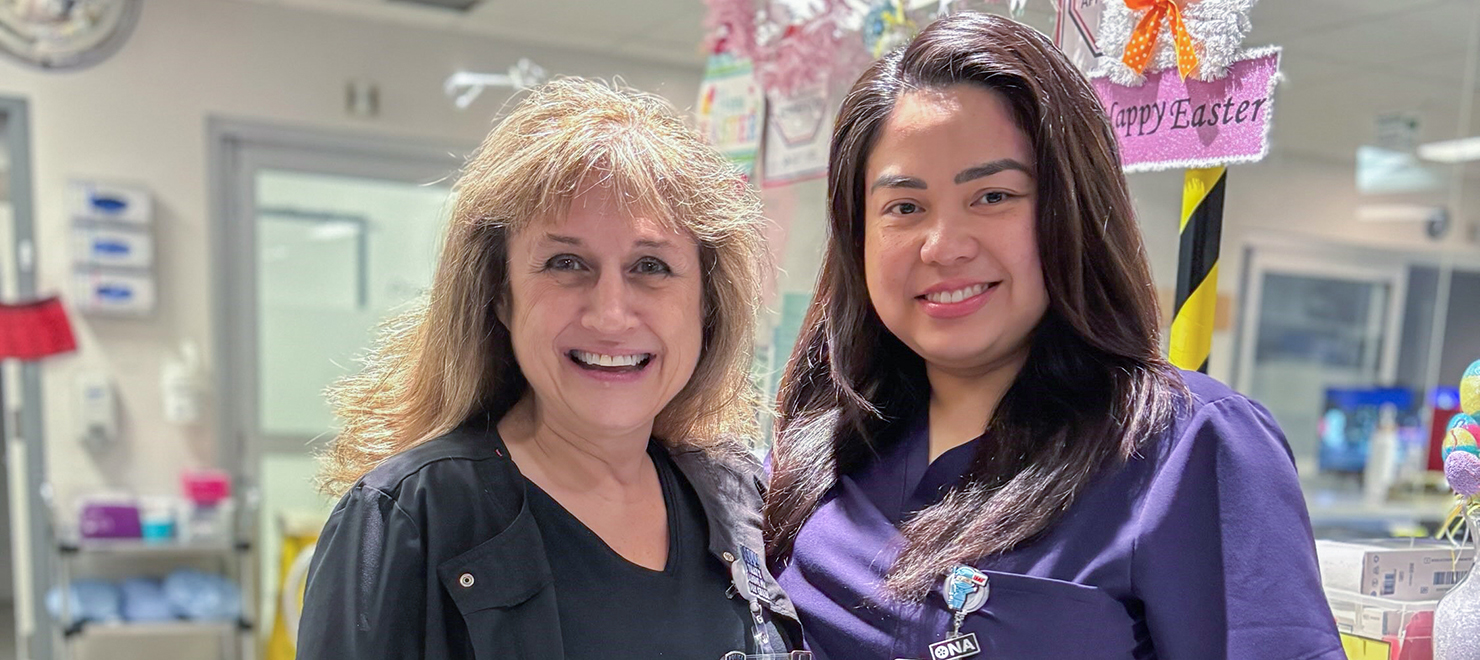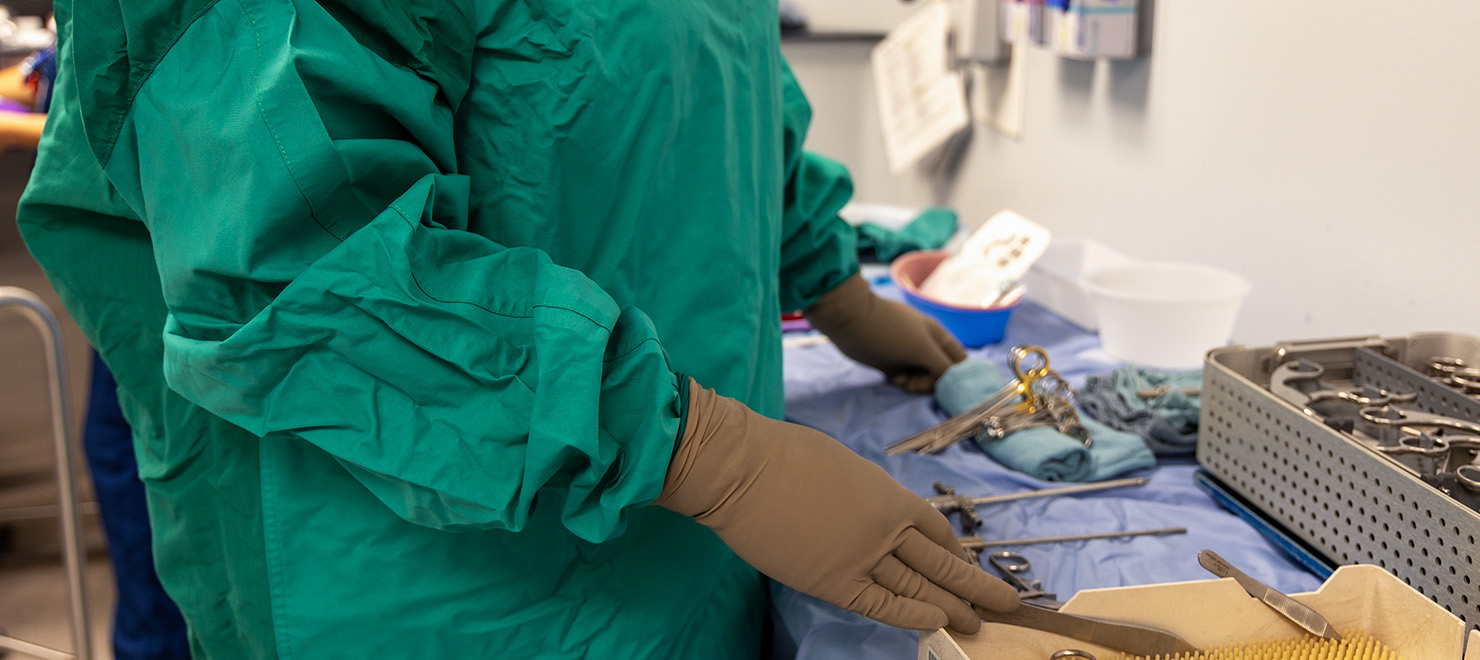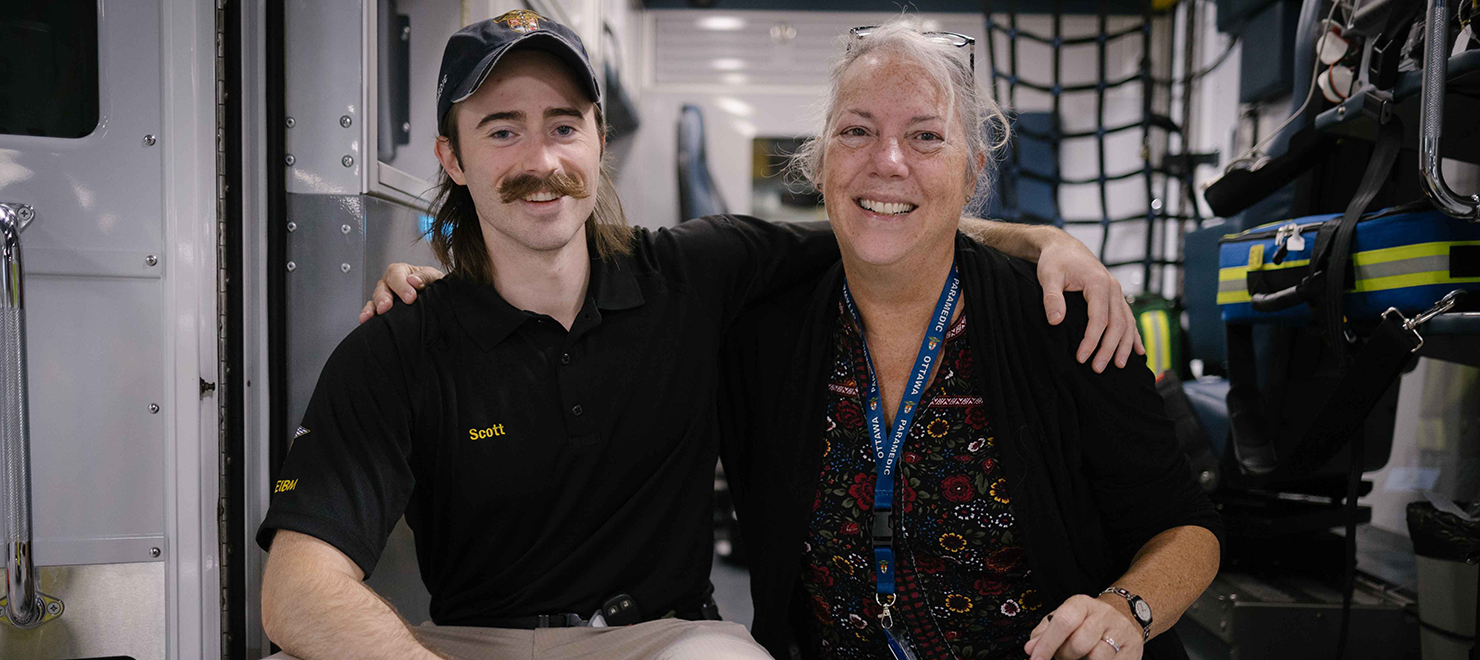
A call comes into 911. Primary care paramedic Scott Farrell arrives on the scene and tends to the patient.
Physically, the woman is fine. Scott makes sure of that. But she is overwhelmed with stress and expressing thoughts of suicide.
Scott is usually partnered with another paramedic, but today, he’s riding alongside a social worker from The Ottawa Hospital who specializes in crisis counselling.
“I performed a safety assessment to see if she was safe to go home,” explains Cindy Gill, Scott’s partner for the day. “I then provided her with validation and emotional support and coached her on coping skills. Because she suffers from chronic mental health issues, she has a mental health case manager, whom I contacted. I also contacted The Ottawa Hospital’s team of crisis counsellors so they can follow up with her, too.”
Not long ago, Scott wouldn’t have had someone like Cindy by his side—and he wouldn’t have had many options for helping this patient. “If I responded to a mental health call, the only thing I could really do was bring the patient to the emergency department,” he says.
Cindy and Scott are members of the Mental Wellbeing Response Team, a collaboration launched in March 2022 between the Ottawa Paramedic Service and The Ottawa Hospital’s Mobile Crisis Team, a group of skilled mental health professionals.
Seven days a week, from 9 a.m. to 9 p.m., a social worker or registered nurse from our Mobile Crisis Team hits the road with a paramedic. Together, they respond to 911 calls for mental health emergencies across the city.
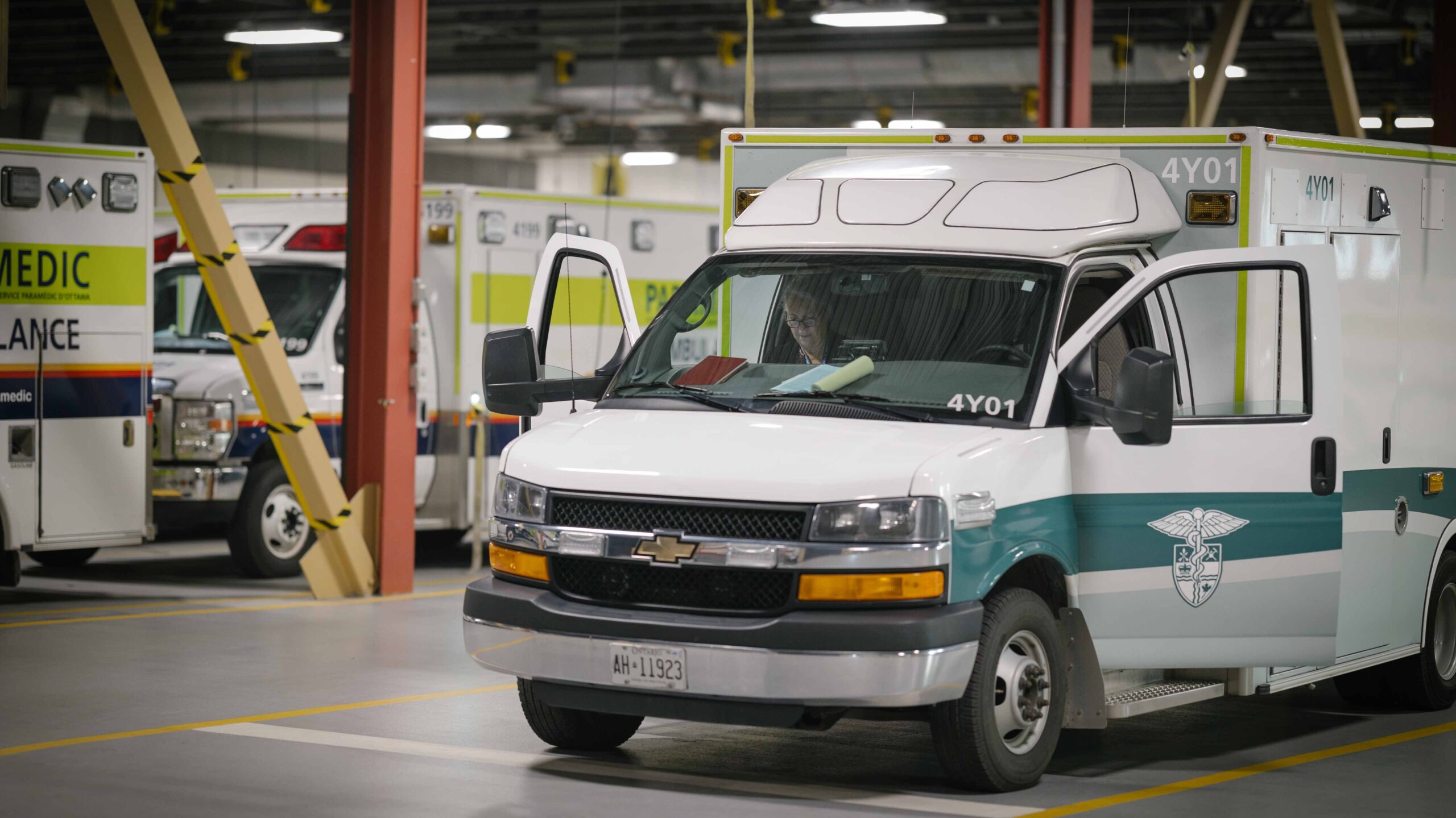
Offering patients in-the-moment support and referrals for follow-up care
When the Mental Wellbeing Response Team arrives on the scene, the paramedic first conducts a medical assessment to make sure that the patient is medically stable and doesn’t need to go to the hospital for treatment. If the patient doesn’t require medical attention, the paramedic then hands over care to the social worker or registered nurse.
“We conduct a mental health assessment, which might include focusing on safety if they’re at risk of harming themselves or others,” explains Cindy. “We offer in-the-moment support by talking to them, listening to them, validating them and letting them know they’re not alone in their struggles.
“We also come up with a follow-up plan, which can include a follow-up by the Mobile Crisis Team or referrals to other community services, such as a program at the Royal Ottawa, addiction resources or community counselling. We might get in touch with their family doctor or their friends and family. We can call their pharmacy to see if they need to refill their prescription. And sometimes, the person does need to go into the emergency department to see a doctor for medication.”
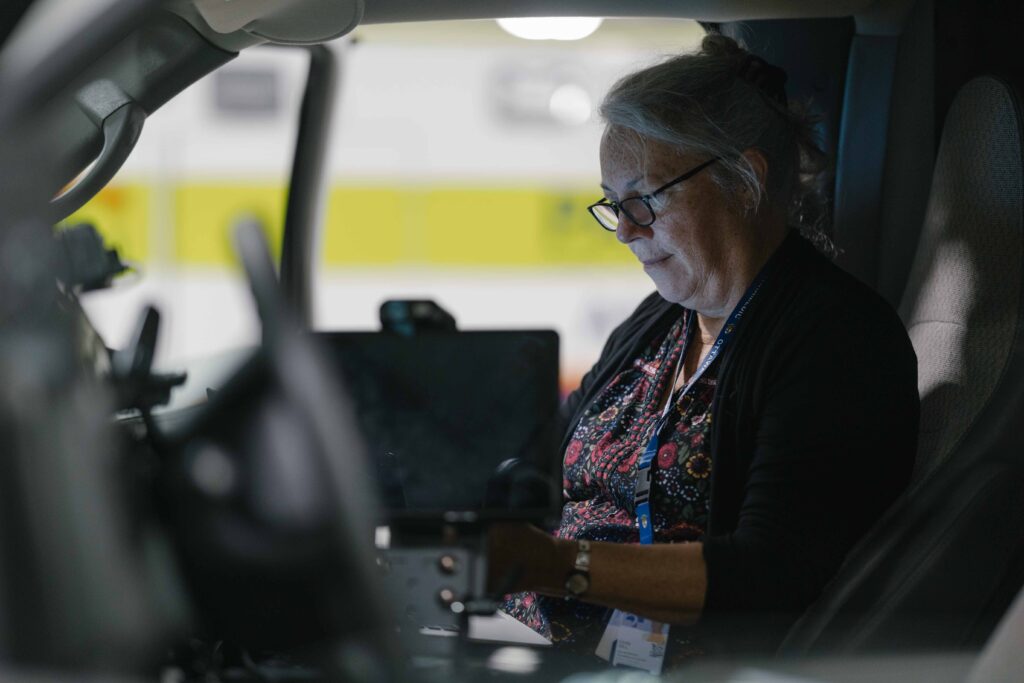
Keeping ambulances on the road and patients out of the emergency department
Because the Mental Wellbeing Response Team can usually help patients right on the scene, without taking them to the emergency department, ambulances can respond to other calls.
“On one of my first shifts with the team, we responded to a call of someone having a panic attack,” recalls Scott. “A paramedic crew was already there. We assessed the person and cleared the paramedics from the scene. We made a referral to the hospital’s Mobile Crisis Team to help this person get a referral to a family doctor. Not long after, the same paramedic crew that we cleared from the scene responded to a very serious cardiac arrest. They took the patient to the hospital, where the patient made a full recovery. Had we not taken over that call, that cardiac patient may have waited a lot longer for treatment—and the result may have been very different.”
Since the Mental Wellbeing Response Team first hit the road, approximately 65 percent of patients have received care out in the community, diverting them away from the emergency department.
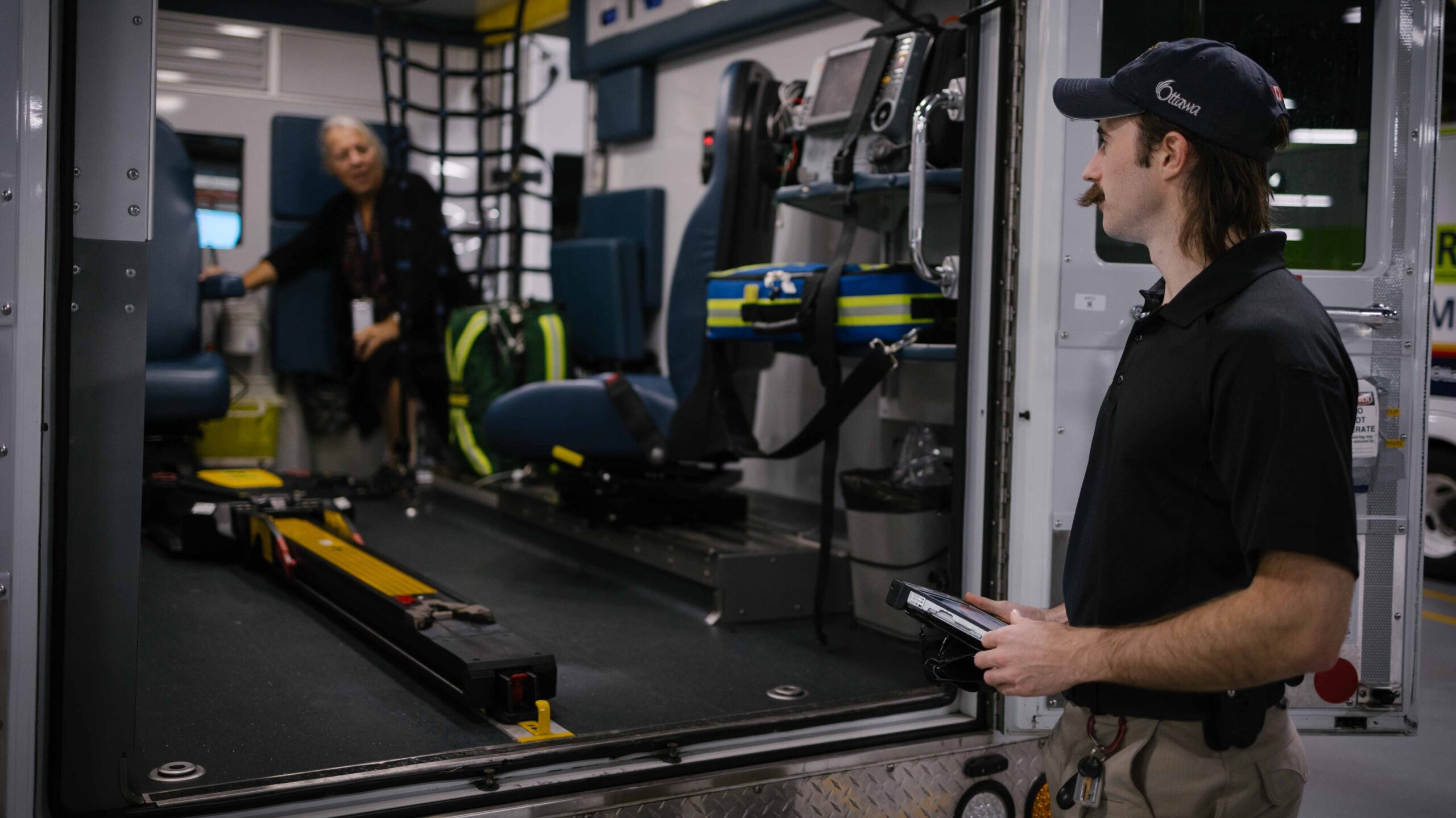
A big learning experience for paramedics
Scott spends upwards of five shifts a month with the Mental Wellbeing Response Team. Seeing mental health professionals at work in the field has taught him a lot about how to help people with mental health needs. During his regular shifts with his full-time paramedic partner, he often puts this knowledge to use.
“I respond to a lot of calls where people are experiencing a mental health crisis,” says Scott. “And then sometimes, by the time we arrive, that crisis has finished and they’re feeling calm, but they have no follow-up care in place. I can provide them with some resources, such as different types of counselling services, social services, substance use services, and resources and programs for people experiencing homelessness. Though I can’t make direct referrals like the social workers or nurses can, I can still offer patients some help.”
When conducting a suicide assessment, Scott has a better understanding of the red flags to look out for.
“Recently, I had a call about a gentleman having an overdose, and within a few minutes of speaking to him, it became clear to me that he had made an attempt to die by suicide,” he recalls. “I concluded that he was not safe to go home and needed to go to hospital. Because of everything I’d learned, the call went a little bit more smoothly than it might have otherwise and we were able to get him to hospital.”
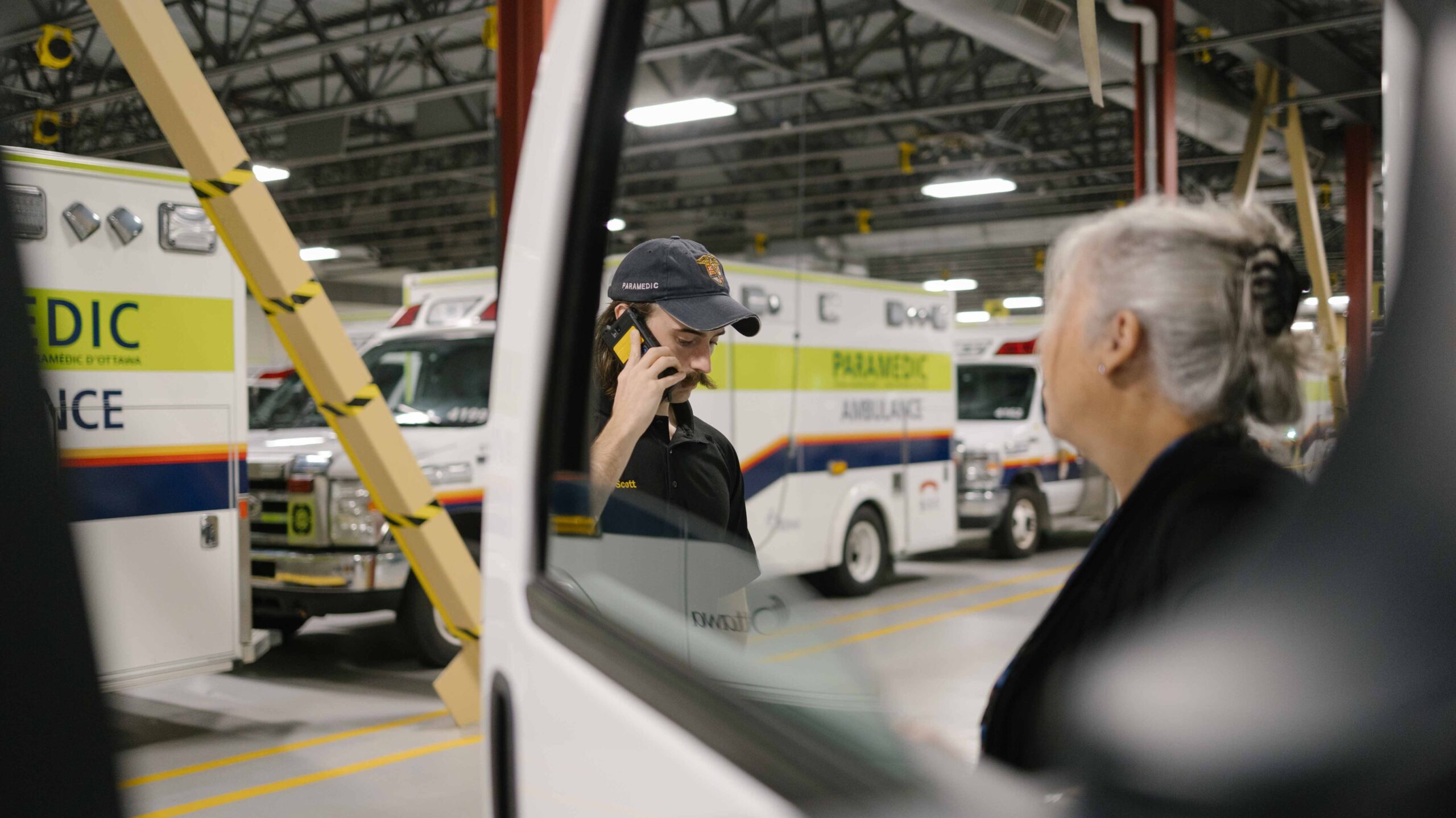
The calls they will never forget
For both Cindy and Scott, the most rewarding part about being on the team is seeing firsthand the positive outcomes they have helped create for their patients. Some of these calls will stay with them for the rest of their lives.
“One memorable call involved a person who had young children,” recalls Cindy. “She was feeling suicidal in reaction to some very stressful events in her life. We helped her regulate her emotions, referred her to our community counselling partners and found a follow-up care plan tailored to her needs. We were able to stay with her until a friend arrived to help care for her children. When we left the scene, the children were on their way to the playground.”
“One call involved someone with anxiety who was very confused and distressed. We ended up taking the patient to the hospital for treatment because they weren’t safe to stay at home,” recalls Scott. “And then maybe a couple weeks later, I was off duty, in my car, and I just happened to be driving down the road where that person lived. I saw that patient with their partner sitting outside on their porch, and they both looked super happy. It was nice to see that that person was doing a lot better and seemed to be thriving.”
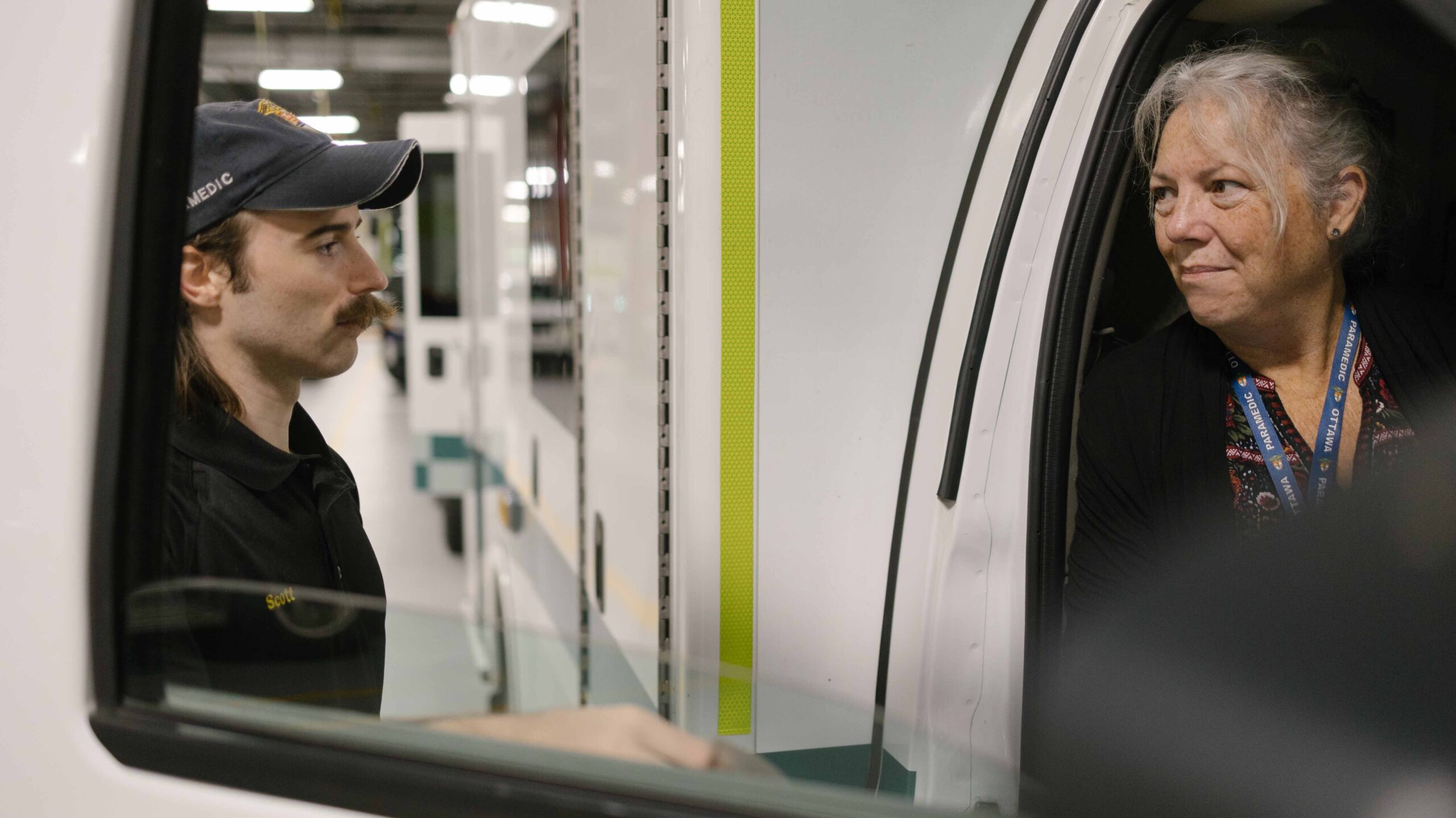
Mental health services at The Ottawa Hospital
The Ottawa Hospital provides a range of hospital-based mental health services at the Civic and General campuses, as well as a number of highly specialized community-based services.
If you or someone you know is experiencing serious mental health problems, call the Mental Health Crisis Line toll free at 1-866-996-0991, or locally at 613-722-6914, 24 hours a day. If you are in immediate danger or a life-threatening situation, call 911 immediately. If you need urgent medical attention, go to your nearest hospital.

Support patient care and research at
The Ottawa Hospital
You might also like…
Less time charting means more time with patients: How The Ottawa Hospital is using AI to support patient care
“I’m seeing and treating more patients.” Find out how DAX Copilot, a powerful AI assistant, is helping our physicians cut down on paperwork, improve their own well-being and spend more time with patients.
A guide to services at The Ottawa Hospital for Indigenous patients and families
At The Ottawa Hospital, we are committed to providing culturally safe care for First Nation, Inuit and Métis patients and families. We are working with Indigenous partners to identify ways we can make your time in hospital more welcoming. Here are some of the ways we’re doing that now.
Novice nurses and their mentors learn and grow together
Discover how mentorships at The Ottawa Hospital facilitate a smoother transition into practice for novice nurses, allow experienced nurses to hone their leadership skills, and play a crucial role in retaining nurses from both generations.
New reusable surgical gowns a step towards greener operating rooms
The Ottawa Hospital is finding safe, innovative ways to reduce medical waste in its operating rooms by using more environmentally sustainable products.
“Crash testers”: Preparing our health-care teams for real-life emergencies
Swapping patients for manikins, our Simulation Patient Safety Program recreates medical emergencies right in our hospital, allowing our care teams to “crash test” their responses to cardiac arrests, respiratory failures, mass casualty events and more. Dive into this Q&A for a closer look at how this training program enhances patient safety and quality of care.
A new guide to navigating your mental health
The Ottawa Hospital has partnered with YouTube to create an important series of videos where health-care professionals offer expert guidance to help you or a loved one navigate mental health challenges.


 To reset, hold the Ctrl key, then press 0.
To reset, hold the Ctrl key, then press 0.
